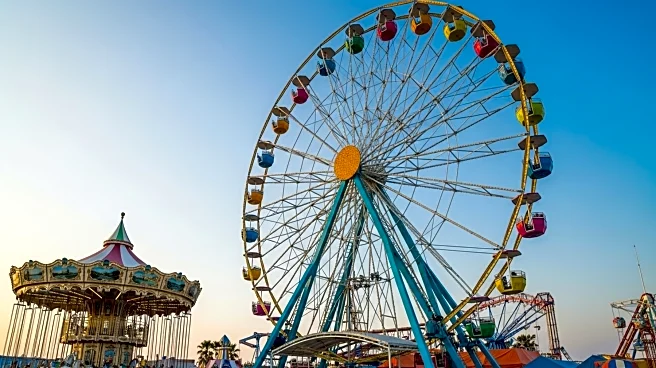What's Happening?
Amusement parks continue to be popular vacation destinations for American families, offering rides, concessions, and a unique experience that has become a rite of passage for many. Industry leaders like Disney and Universal generate billions of dollars annually from their theme parks. In a recent discussion, Gilbert Cruz conversed with Brooks Barnes, a writer specializing in show business, and Mekado Murphy, a film editor and roller coaster enthusiast, about the current state of amusement parks and the global roller coaster industry. They explored the dynamics of contemporary amusement parks and the thrill associated with roller coasters worldwide.
Why It's Important?
The amusement park industry plays a significant role in the U.S. economy, contributing billions of dollars annually. These parks not only provide entertainment but also create jobs and stimulate local economies through tourism. The discussion by industry experts highlights the importance of amusement parks as economic drivers and cultural staples. As these parks evolve, they continue to attract visitors, impacting sectors such as hospitality, retail, and transportation. The insights shared by Barnes and Murphy underscore the ongoing relevance and potential growth of this industry.
What's Next?
The future of amusement parks may involve technological advancements and innovative attractions to maintain visitor interest and adapt to changing consumer preferences. Industry leaders might focus on enhancing the visitor experience through virtual reality and interactive rides. Additionally, there could be an emphasis on sustainability and eco-friendly practices within park operations. Stakeholders, including park operators and local governments, may collaborate to address these trends and ensure the continued success of amusement parks.
Beyond the Headlines
Amusement parks are not just economic entities; they hold cultural significance as places where families create lasting memories. The evolution of these parks reflects broader societal changes, including technological advancements and shifts in entertainment preferences. As parks incorporate more diverse attractions, they may also influence cultural perceptions and contribute to the global exchange of ideas and experiences.









